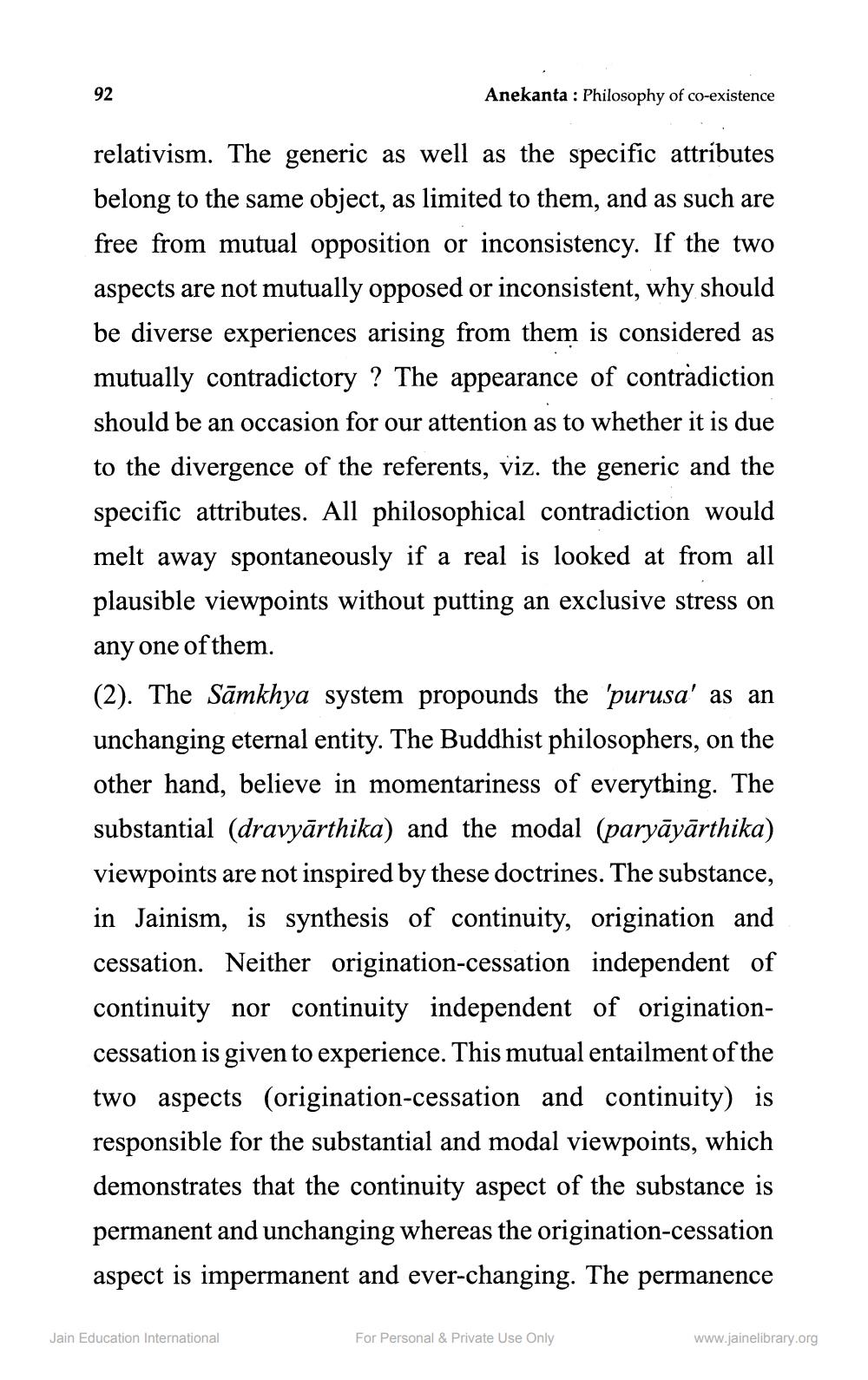________________
92
Anekanta : Philosophy of co-existence
relativism. The generic as well as the specific attributes belong to the same object, as limited to them, and as such are free from mutual opposition or inconsistency. If the two aspects are not mutually opposed or inconsistent, why should be diverse experiences arising from them is considered as mutually contradictory ? The appearance of contradiction should be an occasion for our attention as to whether it is due to the divergence of the referents, viz. the generic and the specific attributes. All philosophical contradiction would melt away spontaneously if a real is looked at from all plausible viewpoints without putting an exclusive stress on any one of them. (2). The Sāmkhya system propounds the 'purusa' as an unchanging eternal entity. The Buddhist philosophers, on the other hand, believe in momentariness of everything. The substantial (dravyārthika) and the modal (paryāyārthika) viewpoints are not inspired by these doctrines. The substance, in Jainism, is synthesis of continuity, origination and cessation. Neither origination-cessation independent of continuity nor continuity independent of originationcessation is given to experience. This mutual entailment of the two aspects (origination-cessation and continuity) is responsible for the substantial and modal viewpoints, which demonstrates that the continuity aspect of the substance is permanent and unchanging whereas the origination-cessation aspect is impermanent and ever-changing. The permanence
Jain Education International
For Personal & Private Use Only
www.jainelibrary.org




